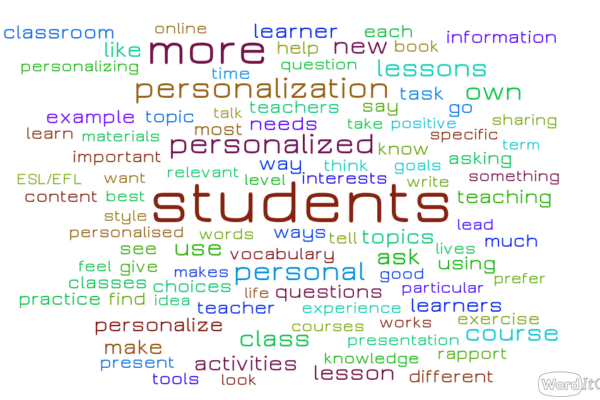The Generation Z Invades Schools
This year, 2018, is a landmark. Schools across the globe, from kindergarten to high school, starting this year, have now only students from the Generation Z. That is, young people in school age were all born in the 21st Century. That brings us the need to understand this generation, the way they act, the way they behave, the way they see the world around them and think.
There are some remarkable differences in the mindsets of these young people compared to the ones from other generations. I will only point out some that I think could be relevant for their learning and for your teaching.
They are digital natives. They were almost born connected to the internet. They do not conceive a world without the web, without a smartphone, without touchscreens. This changes their logic dramatically and is the cause of other characteristics they have.
Their attention span is very short, even shorter than what we were used to know, and is shortening continuously through the decades. They cannot stand still, concentrated in just one activity, for more than 10 minutes. This means that any task, any activity proposed, longer than this, is ineffective. They simply disengage and lose track.
On the other hand, kids from Generation Z are multitask. They open many “windows”, digitally or phisically, and work very well that way. We from other generations don’t understand how they can study, listen to music, answer messages and watch TV at the same time. But they can. And they succeed in doing that. It means we can give them a number of short, but yet interesting, challenging tasks at the same time and they can do them better than giving them one single, long task.
Another characteristic of this generation is what Kevin Kelly, author of Inevitable, an intriguing book talking about the 12 technological forces that will change the world in the next decades, call the Access force. The phenomenon is already seen in services like Uber or Netflix. Take Uber for instance. In the past, the dream of most kids was to take the driver’s license as soon as they could and either buy or be able to drive their parents’ car. Cars were a symbol of power, and having one was surely a consumption dream. This has been changing over the years. I have talked to kids who do not see a car as a symbol of power. Kids who do not want to rush to take a driver’s license, simply because they don’t see the need for driving, once they can ask for an Uber, pay a reasonable price, and not worry about drinking and driving, or the traffic… those kids don’t want to possess anymore. They want to have access to cars to commute from one place to another. And they can even choose the type of car they want. Same thing with Netflix. In the past, we had to buy VHS tapes of the films we wanted to watch at home. Then we started to rent them at video rentals. Now we do not buy films anymore. With Netflix we don’t possess any film at all. But with the signature we simply have access to so many films we would not be able to watch them all in a lifetime. So kids from this generation are increasingly more likely to have access than to possess products and services.
The last characteristic I chose to mention here is that the Generation Z is starting to have different goals in life from the ones we had when we were their age. In the past a symbol of success was to graduate from a highly prestigious university, preferably in Law or Medicine and then find a job in which I could spend the majority if not my entire career. Although some people still think that way, and some parents want their kids to follow that path, there are more and more young people who don’t want this for their lives. They dream of becoming youtubers, of designing an app and then selling it to Google or Apple, of working home and living in many different places, so home is where they are, and therefore their office is anywhere. They want to live experiences: to live abroad, to know different cultures and ways of living, to learn different languages. They truly want to be citizens of the world. So ENEM, vestibulares and going to fancy and prestigious universities simply are accomplishments that don’t appeal to them.
Understanding how this generation thinks and dreams of their future is key to a better education. We simply cannot continue to teach the Generation Z the way Generation X was taught. That is what we have been doing, and that is why kids continue to hate school, to see no point in what they’re learning, to become depressed. A little bit of empathy and understanding might make a big difference to a whole generation.






